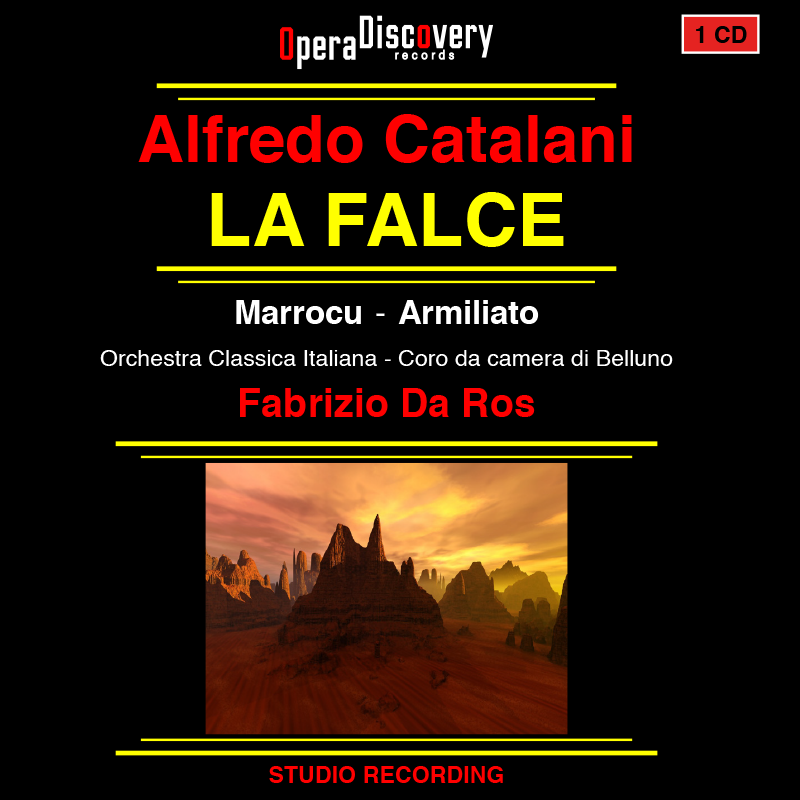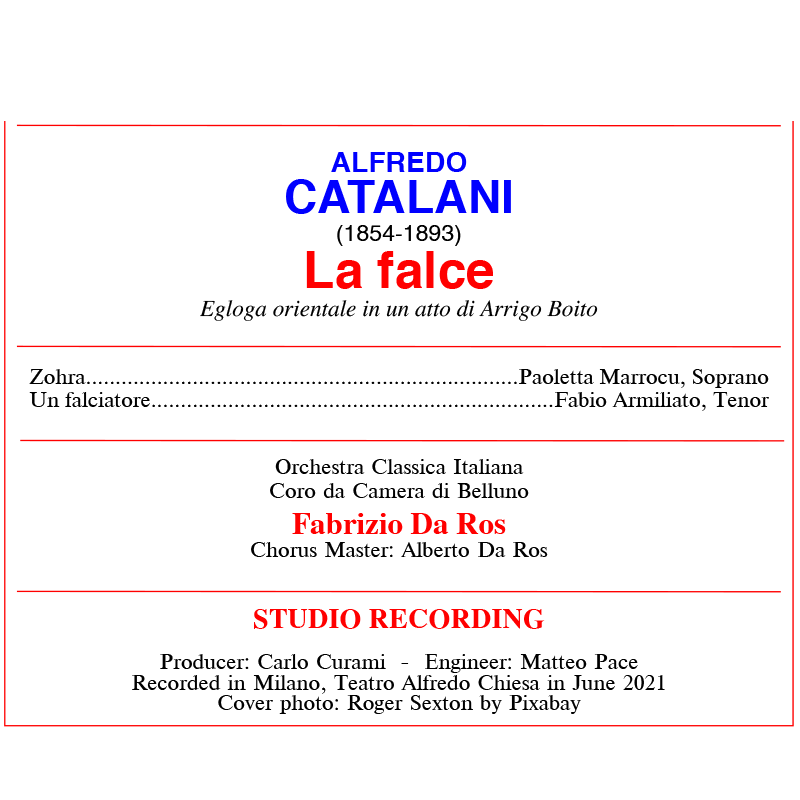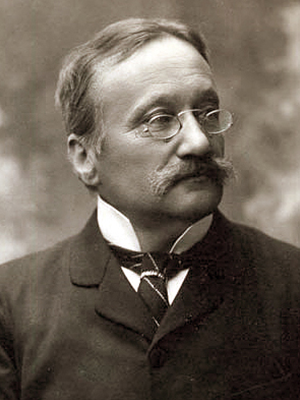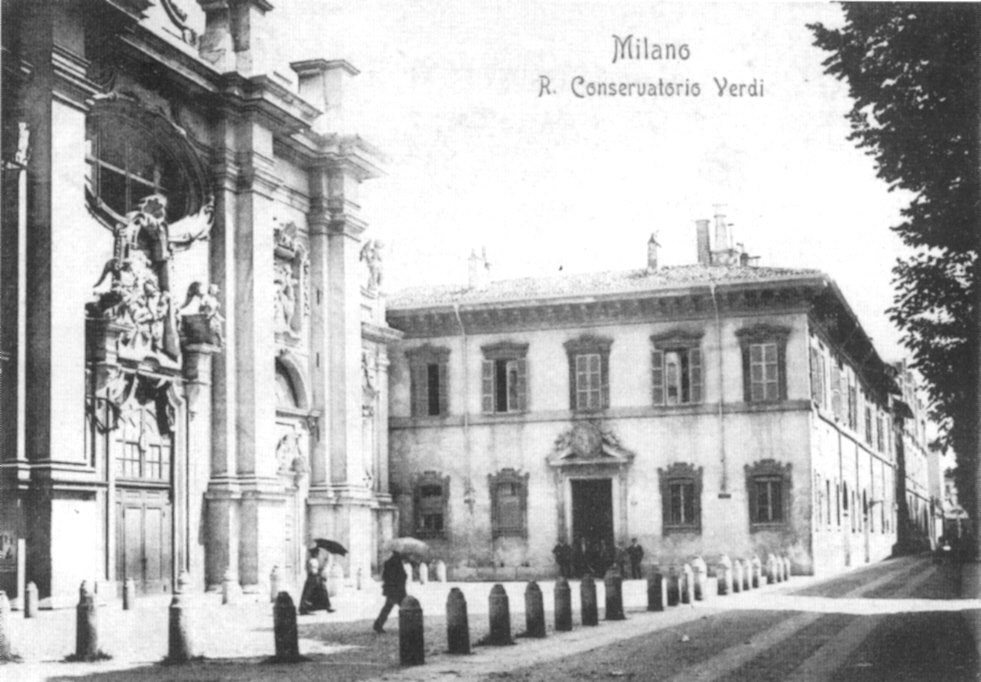

Physical CD
€9,99
Tax included.
Shipping calculated at checkout.
Files in MP3 format
€4,99
Tax included.
Purchase includes the complete opera in MP3 format and the booklet files and Inlay Card sent to the indicated e-mail address.
Alfredo Catalani

Alfredo Catalani
Alfredo Catalani was born in Lucca on 19 June, 1854 and followed his musical vocation against his father’s wishes. He studied at the Istituto Musicale Pacini in Lucca, in Paris with François-Emmanuel-Joseph Bazin and at the Milan Conservatory, where his teachers include Antonio Bazzini. He wrote a number of operas: La falce (1875), Elda (1880), Dejanice (1883), Edmea (1886), Loreley (1890) and La Wally (1892). He composed also sacred music (Messa in mi minore per soli, coro e orchestra, 1872), symphonic music (Ero e Leandro, 1885) and many chamber music for voices and instruments. Despite the growing influence of the verismo style of opera during the 1880s and early 1890s, Catalani chose to compose in a more traditional manner, which had traces of German music in it. Alfredo Catalani was one of Arturo Toscanini’s favorite musicians, he died in Milano on 7 August , 1893.
Arrigo Boito

Arrigo Boito
Arrigo Boito was born in Padova on 24 February, 1842 and was an Italian poet, journalist, novelist, librettist and composer, best known today for his libretti, especially those for Giuseppe Verdi. He wrote for him the librettos of Otello and Falstaff, for Amilcare Ponchielli La Gioconda, for Franco Faccio Amleto, for Alfredo Catalani La falce, for Costantino Palumbo Pier Luigi Farnese, for Gaetano Coronaro Un tramonto. As composer he wrote libretto and music of Mefistofele (firts version 1868, second version 1875) and Nerone (finished after his death by Arturo Toscanini, Antonio Smareglia and Vincenzo Tommasini and premiered at La Scala in 1924). Along with own brother Camillo Boito and his friend Emilio Praga, he is regarded as one of the prominent representatives of the Scapigliatura, artistic movement. Towards the end of his musical career, Boito succeeded Giovanni Bottesini as director of the Parma Conservatory after the latter’s death in 1889 and held the post until 1897. Arrigo Boito died in Milano on 10 June, 1918.
La falce
After studying in Lucca with Fortunato Magi, the uncle of Giacomo Puccini and a talented teacher, Alfredo Catalani moved to Paris where he managed to attend the lessons of Bazin and Marmontel. Back in Italy, he enrolled at the Milan Conservatory to study with Antonio Bazzini (author of Turanda that in some ways anticipated Puccini) and Andreoli. It was in this period that he made close ties with the milanese Scapigliatura, an artistic and literary movement that had Arrigo Boito as its leader. And it was Boito himself (who under the pseudonym of Tobia Gorrio had already signed some librettos) that would provide the libretto of La falce which was staged at the Theatre of the Conservatory of Milan on 11 July 1875, starring Italia Giorgio and Pietro Reslieri. This Egloga Orientale, as the booklet states, had, since its debut, an authentic success. So much so that the publisher Giovannina Lucca, one of the greatest in Italy, wanted to have Catalani among its authors and published following scores.
.
Synopsys

Conservatorio Giuseppe Verdi in Milano
Arabian desert. After the battle of Bedr, on 17 March 624
Sole survivor of a family wiped out during the battle of Bedr young Zohra is desperate. When she sees a man with a scythe approaching, she is certain it is the inevitable minister of death. She ask him to die, but he offers her love, and when, at the end of the opera, a caravan goes by, the two follow it towards life and happiness.
